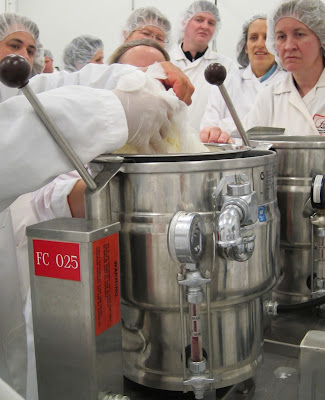Starting Your Own Business: It’s Not Like a Job
I have been pouring a great deal of energy and emotion this past year into establishing myself as a freelance consultant. Paul Graham’s blog posting on What Startups Are Really Like was very reassuring as it demonstrated that I am not alone and that the challenges I am facing are faced by every entrepreneur.
Graham says that startups take over your life and are an emotional rollercoaster. He also emphasizes that you have to be persistent and think long term. You have to view your startup idea as a hypothesis and be flexible as it may need to be changed. Luck is a big factor: success depends on skill, determination – and luck.
Graham says that people are often surprised by their freelance/startup experience because it’s not like a job. “Everyone's model of work is a job. It's completely pervasive. Even if you've never had a job, your parents probably did, along with practically every other adult you've met. Unconsciously, everyone expects a startup to be like a job, and that explains most of the surprises. It explains why people are surprised how carefully you have to choose cofounders and how hard you have to work to maintain your relationship. You don't have to do that with coworkers. It explains why the ups and downs are surprisingly extreme. In a job there is much more damping. But it also explains why the good times are surprisingly good: most people can't imagine such freedom.”
Graham says that startups take over your life and are an emotional rollercoaster. He also emphasizes that you have to be persistent and think long term. You have to view your startup idea as a hypothesis and be flexible as it may need to be changed. Luck is a big factor: success depends on skill, determination – and luck.
Graham says that people are often surprised by their freelance/startup experience because it’s not like a job. “Everyone's model of work is a job. It's completely pervasive. Even if you've never had a job, your parents probably did, along with practically every other adult you've met. Unconsciously, everyone expects a startup to be like a job, and that explains most of the surprises. It explains why people are surprised how carefully you have to choose cofounders and how hard you have to work to maintain your relationship. You don't have to do that with coworkers. It explains why the ups and downs are surprisingly extreme. In a job there is much more damping. But it also explains why the good times are surprisingly good: most people can't imagine such freedom.”





Comments
My father in fact did not have a job. When he left the Army in 1919 his 1914 job had gone so with the aid of already established brothers - big thing to have an initial leg up - he started a small wholesale business which another brother joined. Brothers usually make trustworthy partners another big problem.
P & A Bound (Uncle Percy was the P. As the elder he was always slightly the Boss) saw me housed, fed and educated. The type of business was declining long-term and my father and I saw nothing in it for me. I became a cog in big organisations.
In those days expending was easy. You hired someone with no paper-work by the week or month and fired them when you wanted to. That was it. Not so now.
Late in life I became a consultant backed by a pension. I concluded that if you work for other people and make money they keep it. If you work for yourself and make money you keep it. And no one can fire you except the customers and they have to do it all at once.
In N. America the enterprise culture is very alive. Here it struggles under regulation and taxation but even so it can grow. Formal education is not necessarily a plus either.
Take a local young man I know. Dim at school he became a labourer in a plastering firm. Fifteen years later he owns an expending building firm. His arms are covered in tattoos.
But doing whatever is easy. Selling it is hard. You can always hire someone else to do it or buy it from China but you must sell it yourself. As you, Penny have concluded.